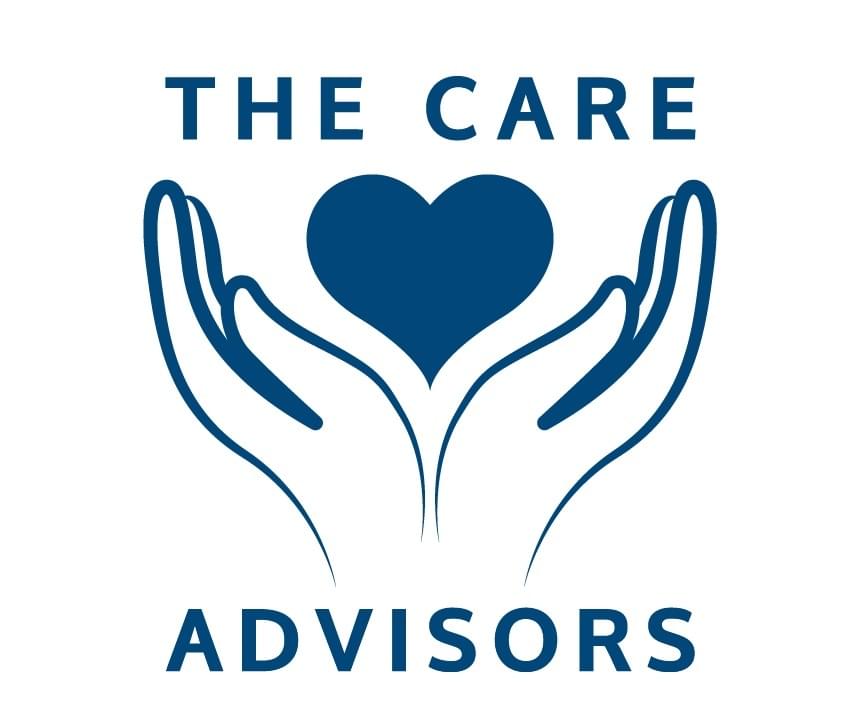
For OTC Assistance
Call (888) 303-7088
Medicare and Medicaid recipients can now receive extra help! Get assistance towards medications, groceries and more included with OTC(Over-The-Counter) benefits!
Monthly allowances may also be used for transportation and even certain medical equipment.
To see if you qualify, call us at (888) 303-7088 or fill out our quick form and we'll contact you!
Enter Contact Info Below
How To Apply For OTC Card In New Jersey
An OTC (Over-the-Counter) card in New Jersey is a special benefit card that allows eligible individuals to purchase health-related items without a prescription. This card works much like a debit card, and it can be used at participating stores and pharmacies to buy products such as vitamins, pain relievers, and first aid supplies. Having an OTC card offers several benefits. It makes it easier for individuals, especially those with fixed incomes or health conditions, to maintain good health by providing a way to afford necessary medical supplies. The card helps manage health costs, ensuring that essential items are accessible without directly impacting your wallet every time you need them. This not only promotes regular preventive care but also reduces the need for more expensive medical interventions by allowing timely and cost-effective management of common health issues.
Eligibility criteria to Apply For OTC card in New Jersey
To qualify for an OTC card in New Jersey, applicants must meet specific criteria that ensure the program supports those who need it most. Here’s what you need to know about who can apply and the requirements:
Residency and Age: Applicants must be residents of New Jersey. Generally, the card is available to seniors, individuals with disabilities, or those receiving certain types of government assistance.
Enrollment in Eligible Programs: Most individuals who are eligible for an OTC card are also participants in Medicaid or are enrolled in a Medicare Advantage Plan that offers an OTC benefit. Some private health insurance plans may offer similar benefits, so it’s advisable to check with your insurer.
Income Guidelines: Income limits may apply depending on the program. Typically, these are designed to assist those below a certain income threshold, ensuring aid reaches the most financially vulnerable populations.
Health Plan Participation: Your health plan must participate in the OTC card program. Not all plans offer this benefit, so confirm with your health insurance provider whether this option is available under your current plan.

Who Can Apply?
Seniors: Older adults often qualify for OTC cards through their Medicare Advantage plans.
Individuals with Disabilities: Those receiving disability benefits may be eligible for OTC cards if their health plans include this benefit.
Low-Income Families: Families and individuals below certain income levels who receive Medicaid benefits are typically eligible.
Participants in Specific Health Programs: Some special state-run health programs may offer OTC benefits as part of their services to help manage chronic conditions or promote general wellness.
If you think you might qualify, the next step is to contact your health insurance provider or a local Medicaid/Medicare office to get detailed information and start your application process. This ensures you can access and make full use of the benefits provided by the OTC card.
Application process for OTC card in New Jersey
Applying for an OTC card in New Jersey is straightforward. Here’s a step-by-step guide to help you through the process, along with a list of the documents and information you’ll need:
Steps to Apply:Verify Eligibility: Before you start the application process, it's crucial to ensure you qualify for the OTC card. You can confirm your eligibility by getting in touch with your health insurance provider or by checking the details on their official website.
Gather Required Documents: Collect all necessary documents that verify your identity, residency, and eligibility.
Contact Your Health Insurance Provider: Reach out to your provider to get the specific application form for the OTC card program or download it from their website if available.
Complete the Application: Carefully fill in the application form, making sure all the information you provide is correct. Accurate details will help avoid any potential delays in the processing of your application.
Submit the Application: Send your completed application and copies of your documents to the address provided by your health insurance. Some providers may also allow online submissions.
Await Approval: Once you've submitted your application, there will be a period of review. Your provider will reach out to you if any additional information is required or to inform you when your application has been approved.
Required Documents and Information:
Proof of Identity: Provide a form of identification, such as a driver’s license or state-issued ID card.
Proof of Residency: Utility bills or lease agreement showing your address in New Jersey.
Proof of Eligibility: Documentation from your health insurance or a government assistance program showing you are eligible for the OTC card.
By following these steps and preparing the necessary documents, you can smoothly apply for and receive your OTC card in New Jersey.
Call (888)303-7088 to see what you're eligible for!
Where to get an OTC card in New Jersey
Obtaining an OTC (Over-the-Counter) card in New Jersey can be done at various locations or through online platforms, providing flexibility and convenience for applicants. Here are the available venues and methods through which you can apply:
Locations to Apply:Local Health Insurance Offices: Visit your health insurance provider's local office. They can offer personalized assistance and provide you with the necessary forms and information.
Participating Pharmacies: Some pharmacies that are part of the OTC program can also provide applications and guidance on how to apply.
Community Health Centers: These centers often assist with applications for health benefits, including OTC cards, especially for low-income individuals or those without internet access.
Online Application Options:
Health Insurance Provider’s Website: Many health insurers offer an online application process. Visit their website, find the OTC card section, and follow the instructions to apply directly online.
Email or Downloadable Forms: Some sites allow you to download the application form, which you can then fill out and email or mail back to the provider.
Applying for an OTC card in New Jersey is designed to be accessible to all eligible individuals, whether they prefer to handle it in person or from the comfort of their home. Make sure to have all your necessary documentation ready and check with your specific health insurance provider for any additional steps or requirements they might have. This will help guarantee a seamless and effective application process.
Using an OTC card in New Jersey
Once you have your OTC (Over-the-Counter) card in New Jersey, using it is simple, but there are some guidelines to follow regarding where and on what you can spend. Here's how to use the OTC card and understand its restrictions:
How to Use the OTC Card:
At Participating Stores and Pharmacies: Use your OTC card like a debit card at stores and pharmacies that participate in the OTC program. These locations often display a sign indicating they accept OTC cards.
Check Out Process: At the checkout, choose the OTC card option on the card machine and swipe your card. You'll need to enter your PIN or sign for the purchase, depending on the store's system.
Online Purchases: Some providers also allow you to use your OTC card for online purchases from approved websites. This is especially convenient for home delivery of essential health items.
Restrictions and Limitations:
Eligible Items Only: The OTC card can only be used to purchase specific items, such as over-the-counter medications, health-related products, and wellness supplies. The list of eligible items is usually provided by your health insurance plan.
No Cash Back: You cannot receive cash back from an OTC card transaction.
Purchase Limits: Some items may have quantity limits per month, and the total amount available to spend is typically capped based on your specific health plan benefits.
Using your OTC card correctly ensures that you maximize its benefits without any issues. Always keep an updated list of eligible items handy during your shopping trips, and regularly check your balance to manage your funds efficiently.
Managing and renewing an OTC card in New Jersey
Managing your OTC (Over-the-Counter) card and ensuring it's renewed on time is crucial to continue enjoying its benefits. Here's how you can keep track of your card's balance and handle its renewal:
Keeping Track of the Balance:Online Account Management: Most OTC card providers offer an online portal where you can log in to view your balance and transaction history. This is the easiest way to keep track of how much you have left to spend.
Phone Inquiry: You can also call the customer service number provided on the back of your OTC card.Use the automated system or talk to a customer service representative to verify your balance.
Receipts: Keep your purchase receipts, as they often include the remaining balance on your OTC card.
Renewing Your OTC Card:
Automatic Renewal: In many cases, if you remain eligible for the program, your OTC card will be automatically renewed at the end of its expiration period. Check with your health plan to confirm if this applies to you.
Manual Renewal: If automatic renewal isn’t available, you may need to fill out a renewal form either online or by visiting a local office. Your health plan will provide instructions as the expiration date approaches.
Eligibility Check: Ensure you still meet the eligibility criteria for the OTC card each year. Any changes in your health plan or income might affect your qualification.
Managing your OTC card effectively involves regularly monitoring your spending and being proactive about renewal to ensure continuous access to your benefits.
Benefits of having an OTC card in New Jersey
An OTC (Over-the-Counter) card offers numerous benefits to its holders in New Jersey, helping them manage health-related expenses effectively. Here’s a breakdown of the additional benefits and why it’s important to utilize this card for eligible purchases:
Additional Benefits:Cost Savings: The OTC card covers costs for many health and wellness products, reducing out-of-pocket expenses for essential items like medications, first aid supplies, and wellness products.
Convenience: With an OTC card, you can easily purchase necessary health items at participating local stores or online, making it convenient to get what you need without waiting for doctor's appointments for prescriptions.
Flexibility: The card gives you the flexibility to choose from a wide range of eligible products, allowing you to tailor purchases to your specific health needs.
Importance of Utilizing the OTC Card:
Preventive Care: By using the OTC card for preventive care products, such as vitamins and over-the-counter medications, you can maintain your health and potentially avoid more serious health issues down the line.
Budget Management: Regularly using your OTC card helps you stay within your health care budget by making full use of the benefits provided by your health plan.
Accessibility: The card makes health care products more accessible, especially for those with limited mobility or those who live in areas with fewer pharmacies.
The OTC card not only aids in managing health expenses but also promotes a proactive approach to health and wellness, making it an invaluable tool for eligible residents in New Jersey.

Call (888)303-7088 to see what you're eligible for!
Tips for maximizing the benefits of an OTC card in New Jersey
An OTC (Over-the-Counter) card is a valuable resource for managing health-related expenses. Here are some suggestions on how to make the most out of your OTC card and ways to save money while staying organized:
Making the Most Out of an OTC Card:Plan Your Purchases: Before you shop, check your OTC card balance and make a list of the items you need. This helps prevent impulse buys and ensures you purchase essential health items first.
Stay Informed: Keep up-to-date with any changes to the list of eligible items or any additional benefits your OTC card may offer throughout the year.
Use All Benefits: Besides purchasing items, some OTC cards offer extra services such as free transportation to medical appointments or discounts on gym memberships. Make sure you're aware of and use these benefits.
Ways to Save Money and Stay Organized:
Track Spending: Regularly monitor what you spend your OTC card funds on. This can help you adjust your spending habits and ensure you are using the card efficiently.
Bulk Purchases: For items you use regularly, consider buying in bulk if your card balance and storage space allow. This could lead to savings over time.
Set Reminders: Use a calendar or digital reminders to keep track of when to use your card, especially if it has a monthly use-it-or-lose-it policy.
By following these tips, you can maximize the value of your OTC card, ensuring you get the most benefit from every dollar spent, while also keeping your health care expenses organized and under control.
What is an OTC card?
An OTC card allows eligible individuals to purchase specific health-related items without a prescription at participating stores and pharmacies.
Who qualifies for an OTC card in New Jersey?
Typically, beneficiaries of certain Medicare Advantage plans or those enrolled in specific health insurance programs that include OTC benefits are eligible. Original Medicare does not cover OTC items.
What can you buy with an OTC card?
You can purchase over-the-counter medications, health and wellness products, personal care items, and certain health aids. However, cosmetic items, durable medical equipment, and medical services are generally not eligible.
Where can I use my OTC card?
Most major supermarkets and pharmacies like CVS, Walgreens, Rite Aid, Walmart, and online retailers accept OTC cards. It's best to check with your specific plan for a list of preferred retailers.
How do I use my OTC card?
Use it like a debit card at eligible stores, ensuring you have enough balance to cover your purchase. Always check your balance before shopping and keep receipts for tracking.
Can I buy food with my OTC card?
Typically, OTC cards cannot be used to buy food. Some Medicare Advantage plans may allow the purchase of health-related food items like nutritional shakes or protein bars, but these are exceptions.
What are the restrictions on using an OTC card?
The card cannot be used for non-health-related items, cosmetic products, or medical services. Additionally, there may be limits on the quantity of items you can buy.
Can the funds on an OTC card roll over?
Rollover policies vary by plan. Some plans may allow unused funds to carry over to the next period, while others might not.
How do I activate my OTC card?
Once you receive your card, activation typically involves calling a toll-free number or going online to a designated website. Immediate activation is crucial to start using the benefits.
Can I use my OTC card out of state?
Most plans allow the use of OTC cards at participating retailers outside of your state, which is particularly useful while traveling.
Medicare and Medicaid recipients can now receive extra help! Get assistance towards medications, groceries and more included with OTC(Over-The-Counter) benefits!
Monthly allowances may also be used for transportation and even certain medical equipment.
To see if you qualify, call us at (888) 303-7088 or fill out our quick form and we'll contact you!
Enter Contact Info Below
"When Mom got sick, it got harder for her to do everyday tasks like cooking, cleaning and laundry. Having me there really helped to ease her tensions on so many levels."
-Sandra Barnes, Philadelphia